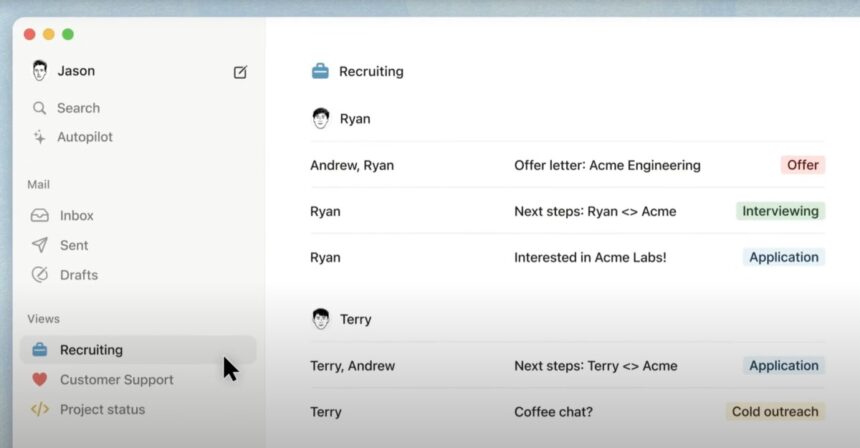Notion, as my colleagues at TechCrunch scooped earlier Thursday, is announcing an email client at its first “Make with Notion” user conference. For now, Notion Mail is in preview, and at least for the time being, it’s more of a Gmail client than a traditional email service. The idea here, Notion says, is to build an email experience that allows users “to ditch the old ways of a rigid inbox and embrace a new way: where email works for you and your workflows.”
When exactly Notion Mail will launch, though, is still a question mark. The company is only committing to “soon” at this point, but there is a waitlist for getting early access.
With adding Mail, Notion continues on its path to offering a more fully featured suite of productivity options. The launch of Notion Mail, after all, comes only a few months after the company launched its Calendar product. Notion Calendar, it’s worth noting, was the product of an acquisition, with the company buying calendar app Cron in 2022.
Similarly, Notion recently acquired Skiff, a security-centric platform that also included an end-to-end encrypted email service. It doesn’t come as a surprise, then, that Notion Mail is taking some design cues from Skiff, but the company’s focus here isn’t so much on security (though I’m sure that’s top of mind for Notion as well) but an integration with Notion AI.

There seem to be two parts to the AI integration here: automatically organizing your emails by using an AI prompt as a kind of smart filtering mechanism, as well as the ability to let “Notion AI handle the tedious back-and-forth such as scheduling and follow-ups,” the company said. How well that works in practice remains to be seen.
One nice feature Notion Mail will offer that I often wish Gmail would is that it doesn’t just allow for using different filters, but also allows you to prioritize emails inside of those filtered views. Gmail, on the other hand, only offers the “priority inbox” view in the main inbox, but when you drill down to any of its default categories like forums, updates, or social, your only option is a reverse timeline view.
Another integration worth highlighting is with Notion Calendar. Users will be able to add a scheduling button to their emails that links them right to their calendars and availability.

In addition to Mail, Notion is also launching a number of other new features. These include Notion Forms, which lets users design forms and collect information, with Notion as the database backing it, as well as the ability to more easily customize layouts in Notion to better suit a user’s preference for how to display tasks, notes, docs, and more.
Notion is also launching some improved automation features, including the ability to connect Notion and Gmail to, for example, notify people via Gmail. And, to round all of this out, Notion has updates it Marketplace with a redesigned web experience.






